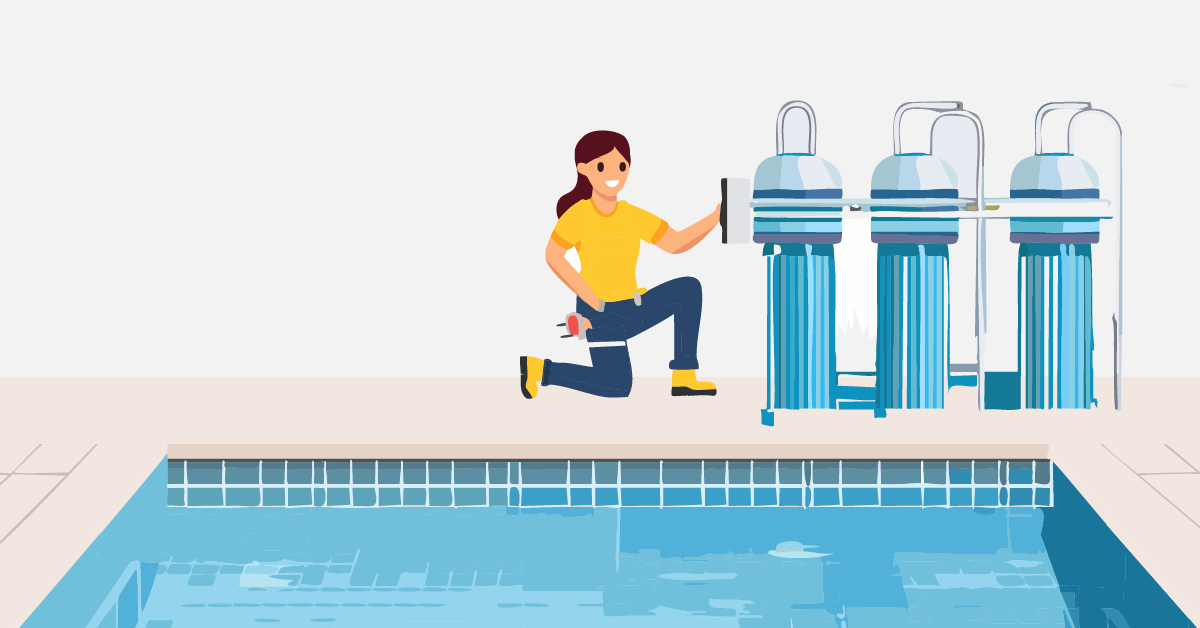The Importance of Pool Repairs for Homeowner Associations
By the team at PoolEntry
November 9, 2024

November 9, 2024

A community swimming pool is often the heart of an apartment complex or homeowner association (HOA) community. It’s a space where residents gather, relax, and enjoy the summer months, especially when the pool opens on Labor Day weekend—a highly anticipated event. However, without proper management and maintenance, this cherished amenity can quickly become a source of headaches, unexpected costs, and resident complaints. For HOA property managers, having a plan for pool repairs and maintenance is crucial not only for the pool’s functionality but also for the well-being of the community.
Properly managing a community pool is essential to avoid costly surprises and to ensure the safety and enjoyment of residents. Routine pool maintenance helps prevent major issues from escalating and allows property managers to budget for repairs in advance. When repairs are delayed or ignored, minor issues can develop into larger, more expensive problems that may even result in pool closures, disappointing residents and causing potential reputational damage to the HOA.
Every property manager should have a carefully planned budget for major pool repairs and renovations. Fortunately, creating this budget doesn’t require hiring a specialist for a full reserve study. Most pool management companies offer free inspections, during which they can provide a detailed list of necessary and recommended repairs. If the same company has managed the pool for multiple seasons, they’ll likely have a good sense of what equipment may need replacement soon. Requesting a list of anticipated repairs can help the HOA prepare for the upcoming year.
The ideal time to request a comprehensive pool inspection is mid-summer or at the end of the season. By mid-summer, most early season issues have been addressed, and lifeguards are trained and in place, allowing the management team to focus on maintenance. At this time, the pool company can conduct a thorough inspection without rushing, ensuring that every detail is reviewed. With this information, property managers can create a realistic budget for repairs before the following pool season begins.
For HOAs located in the Mid-Atlantic region, which includes Maryland, Virginia, Washington, D.C., Delaware, Pennsylvania, New Jersey, Massachusetts, New York, and Connecticut, the cold winter months present additional challenges. Winterization is essential in these areas to protect pool equipment and surfaces from the elements. This process, along with the cold temperatures, can impact the lifespan of pumps, filters, and plaster. Budgeting for these region-specific needs can save on repair costs in the long term.
By staying proactive with pool repairs and maintenance, HOAs can enhance the community experience, maintain property values, and prevent costly, last-minute repairs. A well-maintained pool serves as a focal point of community life, offering residents a safe and enjoyable place to gather. And when the pool operates smoothly, HOA managers can focus on other important aspects of community life.
For property managers who may feel overwhelmed by pool maintenance, there’s no need to go it alone. Pool management companies are an invaluable resource, providing guidance on repair needs, maintenance schedules, and budgeting. With a clear understanding of upcoming repairs and routine maintenance, property managers can ensure that the community pool remains a reliable, inviting space for residents year after year.
A thoughtful approach to pool repairs and maintenance is an investment in the HOA’s most popular amenity, ensuring it continues to be a source of pride and enjoyment for the entire community.